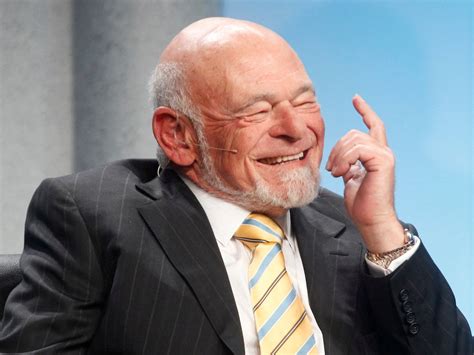A Quote by Martin Gilbert
I think the issue that millennials have is that the return on asset classes such as bonds, cash, are so low now compared to the historical levels that it's very difficult for them to save enough to be able to retire comfortably. If interest rates do trend back upwards, it may be less of a problem going forward.
Related Quotes
And that's the one thing that people do not understand is that we have very low interest rates and if those go back to historical levels or even go back to scary thoughts that they're back in the late '70s, early '80s, then that's going to really be hard to actually pay off those debts. It's going to be a - it's going to be a very big problem.
The problem is that you're creating a system of bubble finance where interest rates are so low that people can speculate. An asset value goes up. You put it up as collateral. You borrow against it. You buy more of the asset. You then take the rising asset. You borrow against it again. This is the nature of what's going on in the world. This isn't an excess of real savings. This is an excess of artificial credit that's being fueled by all the central banks.
If you let interest rates be freed, be set by the free market, they would rise dramatically. There would be a lot of broken furniture on Wall Street. It needs to be broken. The back of the speculative bubble would be broken and we could slowly heal the financial system. That's what I think we need to do but it's never going to happen because there's trillions of asset values dependent on the Fed continuing to suppress, repress interest rates and shovel $85 billion a month of liquidity into the market.
See the investment world as an ocean and buy where you get the most value for your money. Right now the value is in non-callable bonds. Most bonds are callable so when they start going up in price, the debtor calls them away from you. But the non-callable bonds, especially those non-callable for 25-30 years, can go way up in price if interest rates go way down.
If the investor doesn't have enough time and skill to investigate individual stocks or enough money to diversify a portfolio, the right thing to do is to invest in exchange-traded funds that give you exposure to asset classes. It does make sense for the individual investor to think in terms of holding individual asset classes.
Why, just a couple of economic seasons ago, was idle cash considered an indication of bad management or lazy management? Because it meant that management didn't have this money out at work ... Now look. Presto! A new fashion! Cash is back in! Denigrating liquidity has dropped quicker than hemlines. A management is now saluted if it has some cash, some liquidity, doesn't have to go to the money market at huge interest rates to get the wherewithal to keep going and growing. Along with Ben Franklin, my father and your father would understand and applaud this new economic fashion.





































